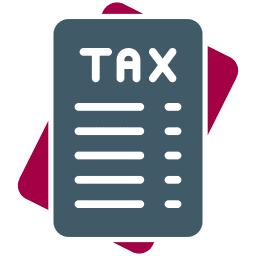How Can We Help
Contact us to find out how TRW Accountants can help you with your accounting needs.
Providing Independent Financial Advice In Lancashire
Do You Need A Balance Sheet?
We discovered last week that Google’s AI Overviews will tell you that not all small businesses need balance sheets. This is technically true, in that unincorporated businesses (sole traders and partnerships) aren’t required by law to prepare a balance sheet for tax filings and do not need to submit accounts to Companies House.
However, we’d argue that for all but the very newest, smallest companies, a balance sheet is valuable even if you’re not filing it, no matter the size of your business. Drawing on our experience as small business accountants for Lancaster and Morecambe, we wanted to make the case that a balance sheet is a vital tool in your toolbox.

Providing Independent Financial Advice In Lancashire
Why Do You Need a Balance Sheet?
Let’s set aside for a moment their use as tax records for limited companies, and look purely at the practicalities.
Your balance sheet would form part of your management accounts. As the name suggests, management accounts are designed to help you manage your business and plan for the future. It acts as a clear picture of your assets, liabilities, and net book value at the moment of the balance sheet.
Once you learn to read a balance sheet (we won’t lie, they can be daunting for those who aren’t familiar with them) they are a great way of identifying potential problems (cash-flow issues, slow-paying debtors, stock build-ups, etc.) before they become a serious issue.
For a very small sole tradership, it’s possible to keep this information in your head, but as you go on, that habit can become a problem. Even at this small size, we would recommend keeping a Profit & Loss account up to date.
This will allow you to identify where individual projects or customers may become a problem more effectively, and it will help prepare you for the point when growth of the business means records are necessary to track performance.
A balance sheet is also very useful if you’re looking for a loan, as lenders will often ask to see one. It makes any existing obligations clear and shows the extent of the business’ assets, which can reassure them.

Providing Independent Financial Advice In Lancashire
Using a Balance Sheet
Until you become more familiar with business finance, it’s not uncommon to hear ‘balance sheet’ and assume that the name stems from ‘bank balance’. It would be more accurate to say that both of them are measuring how well certain figures interact.
On one site, you record your assets – the value of any property and equipment your business owns (which is often the most complicated part of drawing this up), plus your total liquid assets (your cash in the bank).
On the other side you’ll total up your current liabilities (wages, loans, taxes, and pending payments to suppliers – anything payable within a year) and your equity (common stock and retained earnings).
These two values should be identical. If not, either there’s an error in your workings or your business has a serious problem (often a cash flow issue).
Once you’ve identified which of those it is, you can either breathe a sigh of relief if there was an error in the workings or you can start making plans to resolve the issue.
Often, that’s where we come in. With plenty of experience helping small businesses master their accounting and grow, we’d be happy to provide you with the independent financial advice you need. Get in touch today and we’ll be happy to help you.

Professional Accounting And Financial Advice
Contact TRW Accountants
Address:
TRW Accountants
95 King Street
Lancaster, LA1 1RH
Contact Details:
Tel: 01524 64187
Fax: 01524 60029
Email: office@tr-w.co.uk
Registered in England and Wales. Registered office – as above. Company registration 03851905




